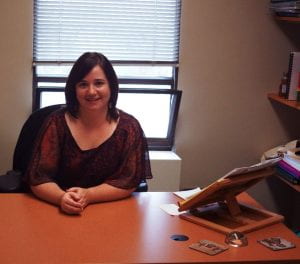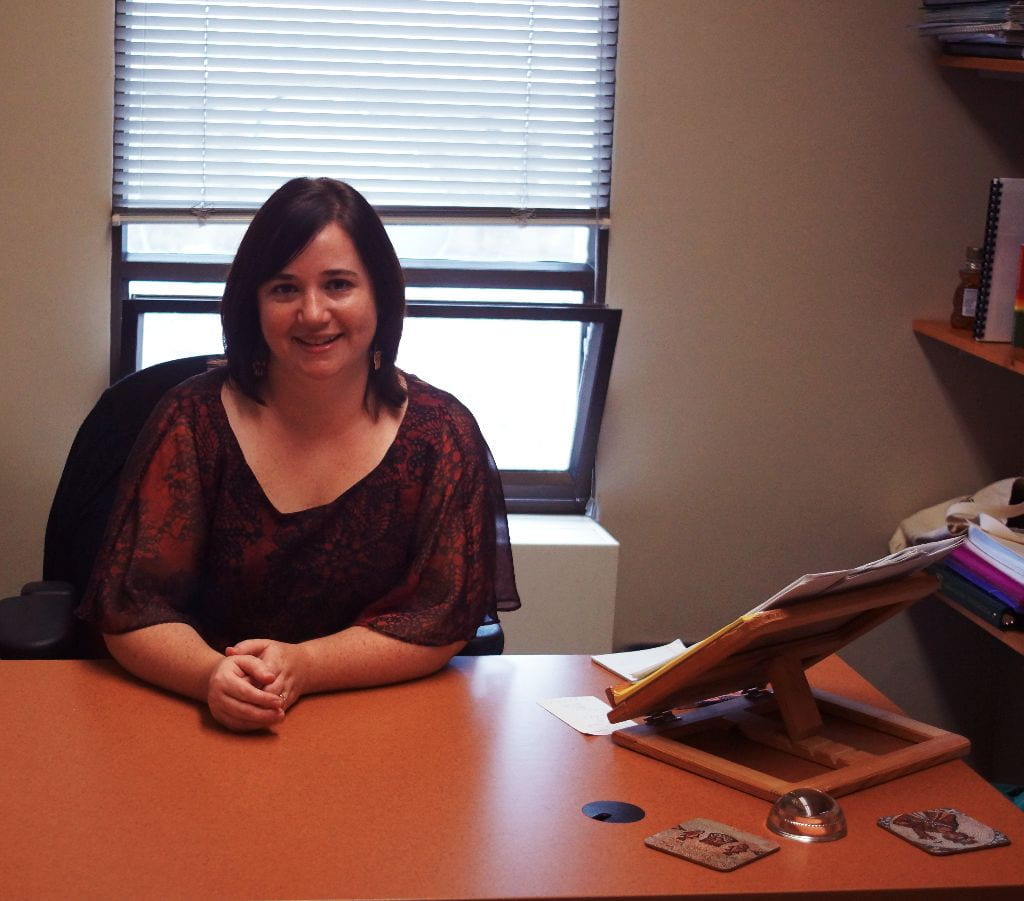BY SHRUTI RAM – STAFF WRITER
Centre College is a small, tight-knit community, so any new or unfamiliar faces are immediately picked out amongst the crowd. It is not just students that are new to this campus every year, but faculty and staff as well. When professors have taught at Centre for years, students pick up on their quirks, interests, hobbies, and favorite topics of discussion, but it takes time to get to know the new teachers. The Cento wanted to get to know these new professors, and allow the students to get an insight into their lives as well.
The first professor The Cento wanted to interview was Dr. Shayna Sheinfeld, Visiting Assistant Professor of Religion, who previously taught at Colgate University and McGill University. Dr. Sheinfeld has lived in a variety of places all over the North American continent and moved to Lexington from New York State this past year.
“I’ve moved around a lot,” Dr. Sheinfeld said. “I was only in New York for one year and before that I was in Montreal for six years, where I got my PhD from McGill University. I’ve also lived in Chicago, where I got my bachelors from DePaul University, and my masters from Harvard Divinity school, and so we lived in Cambridge, Massachusetts as well.”
Moving can be a big adjustment, especially when one has four children of various ages, like Dr. Sheinfeld. Luckily, she loves teaching at Centre College so far and mentioned how kind and welcoming the students and faculty here are.
At Centre, Dr. Sheinfeld currently teaches “Western Religious Traditions,” and her area of expertise was Judaism. Her research specialty is in antiquity, in particular, Second Temple Judaism and Early Christianity. However, one of her favorite areas of study is unexpected, and is one that Centre students will be able to learn more about in the near future.
“My area of biggest interest is in apocalypses.” Dr. Sheinfeld said. “I’m teaching a class on it in the spring.”
Apocalypses were the topic of Dr. Sheinfeld’s dissertation, where she wrote about texts on two two apocalypses that were written after the destruction of the 2nd Temple in 70CE.

“[By] analyzing them, we can try to reconstruct history based on these really bizarre apocalyptic texts.” Dr. Sheinfeld said. “They were written in a certain time period by particular people, so [my dissertation talked about] what we can glean from them in this context in which they were written, like what we can say about leadership in the period following the destruction of the temple.”
At home, Dr. Sheinfeld says that her children, who range in ages from three to sixteen, help keep her grounded, and that a lot of her exposure comes through them and her experiences. Though moving can be a big change, Dr. Sheinfeld happily shared that she is glad her children have adjusted so well.
“They’ve made friends, joined clubs, and are doing well academically there so there are no complaints,” Dr. Sheinfeld said. “Kentucky has been good to us so far.”
Dr. Sheinfeld’s biggest interest outside of religion is reading, and she discovered one of her favorite genres through her children’s own reading interests.
“I love to read fiction, especially Young Adult dystopian novels,” she said, which she discovered when her children began to bring some of those books home., “I also like Science Fiction and Fantasy novels.”
In fact, first-year students will get to explore dystopian novels when Dr. Sheinfeld teaches a fascinating new first-year studies class this CentreTerm, exploring the Young Adult genre.
“It’s a new course, so I will be trying things out for the first time,” Dr. Sheinfeld said. “I don’t think we will be reading a lot of book that most people think of when they think of young adult dystopian novels, like Hunger Games or Divergent, though we may very well watch the movies. There is a whole world of dystopian literature out there that you have to dig a little deeper to get to, and [those books] are in many ways better than the popular books in the genre that are available.”
Dr. Sheinfeld said that she thinks authors of dystopian literature intend to critique certain aspects of society through their work and, through her class, she hopes to apply that to society today.
Dr. Sheinfeld also enjoys relating religious works to pop culture. She left us by sharing that it is important to study the different ways in which the bible can be read and interpreted.
“I think the ways we interpret the bible says a lot more about us, than the bible itself, and it’s a commentary on modern society.”
